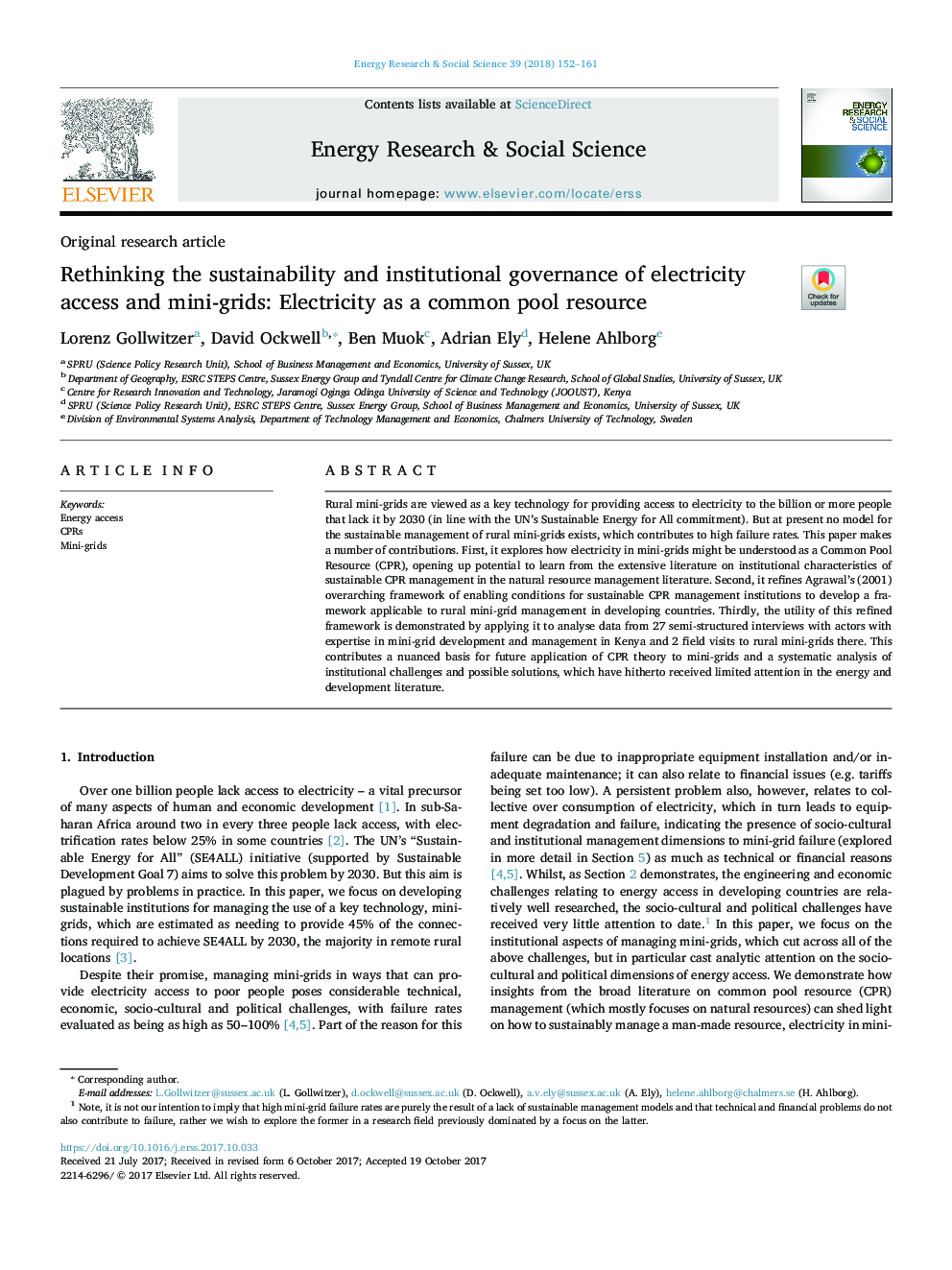| Article ID | Journal | Published Year | Pages | File Type |
|---|---|---|---|---|
| 6557625 | Energy Research & Social Science | 2018 | 10 Pages |
Abstract
Rural mini-grids are viewed as a key technology for providing access to electricity to the billion or more people that lack it by 2030 (in line with the UN's Sustainable Energy for All commitment). But at present no model for the sustainable management of rural mini-grids exists, which contributes to high failure rates. This paper makes a number of contributions. First, it explores how electricity in mini-grids might be understood as a Common Pool Resource (CPR), opening up potential to learn from the extensive literature on institutional characteristics of sustainable CPR management in the natural resource management literature. Second, it refines Agrawal's (2001) overarching framework of enabling conditions for sustainable CPR management institutions to develop a framework applicable to rural mini-grid management in developing countries. Thirdly, the utility of this refined framework is demonstrated by applying it to analyse data from 27 semi-structured interviews with actors with expertise in mini-grid development and management in Kenya and 2 field visits to rural mini-grids there. This contributes a nuanced basis for future application of CPR theory to mini-grids and a systematic analysis of institutional challenges and possible solutions, which have hitherto received limited attention in the energy and development literature.
Keywords
Related Topics
Physical Sciences and Engineering
Energy
Energy (General)
Authors
Lorenz Gollwitzer, David Ockwell, Ben Muok, Adrian Ely, Helene Ahlborg,
